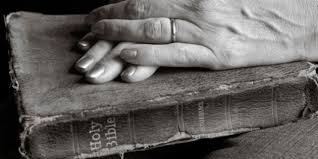THE SECRET GLORY OF THE SHABBAT
"Principalities, powers, rulers of darkness, spiritual hosts of wickedness in heavenly places" [as per Ephesians 6:12]. Ephesians 6 is the New Testament parallel to Joshua 6. Both books deal with spiritual warfare.
"And the Lord said to Joshua: “See! I have given Jericho into your hand, its king, and the mighty men of valour. You shall march around the city, all you men of war; you shall go all around the city once. This you shall do six days. And seven priests shall bear seven trumpets of rams’ horns before the ark. But the seventh day you shall march around the city seven times, and the priests shall blow the trumpets. It shall come to pass, when they make a long blast with the ram’s horn, and when you hear the sound of the trumpet, that all the people shall shout with a great shout; then the wall of the city will fall down flat. And the people shall go up every man straight before him.' - JOSHUA 6:2-5
What does "Jericho" represent today? Three things, spiritually speaking. Jericho represents (a) "the world (or pride)", (b) "strongholds" and (c) "rebellion", both personally, and that of the world against God. In Joshua 6:1, it records that in addition to delivering the city (the walls of Jericho) into Joshua's hand, God also delivered "the king" of Jericho, as well as its "men of valour". In the context, then, of Jericho being figurative of (a) "the world", who, then, is the king "of the world"? That would be the devil. And who are his men of valour? "Principalities, powers, rulers of darkness, spiritual hosts of wickedness in heavenly places" [as per Ephesians 6:12]. Ephesians 6 is the New Testament parallel to Joshua 6. Both books deal with spiritual warfare.
God is in the habit of revealing Himself and His motives to every generation through His timeless Word. The message for us all today, is that, as for Joshua then, the LORD will likewise defeat the enemy, now, as well as all his men of valour (servants) too, for us all today. But in just the same that the defeat of the walls of Jericho was conditional for man then, our own personal victory "over our own walls of Jericho" are equally conditional for man today. In this present age, as with every age since the writing the Book of Joshua, spiritual Jericho is figurative for the fortified heartland of man that is deep within enemy lines that the LORD wants to claim back for the Kingdom of God, namely our souls. The battle of Jericho speaks to the ongoing spiritual war that prevails daily against either the hardened or imprisoned hearts of man so as to add a single soul, one at a time, unto the kingdom of the Promised Land. Such is the battleground, because ""From the days of John the Baptist until now the kingdom of heaven suffers violence, and violent men take it by force." [Matthew 11:12]. Christianity is the battle for one soul at a time.
In respect of the victory over Jericho, a fortified city in the heart of Canaan, Jericho stood for pride against God. It stood for defiance. It held itself in contempt of anything that would consider itself capable of overcoming its walls, including the God of the people of Israel. The standout point, in this parable, is that the "walls of Canaan pride", being some twenty feet wide and twenty five feet high, simply fell flat - without man even lifting a single finger in battle. Being a metaphor for both (b) spiritual strongholds and (c) personal rebellion, twenty foot wide walls represent both either (i) significant spiritual entrapments that hold us captive, and (ii) well-established measures of hardness of heart that hold back from our personal and incremental surrender unto God. If we want them to, these walls can come down too. But there is condition.
With this in mind, what is one of the keys to God tearing down either (b) spiritual strongholds in our lives, or (c) any walls of rebellion that encircle our hearts? The answer has many parts. Any time there is "a condition" attached to a breakthrough, or a blessing, or a miracle, it pertains to either man’s “obedience” or his "sacrifice". God always prefers obedience [1 Samuel 15:22]. In Joshua's case, this also was true. Obedience was required. "Step-by-step" obedience. Defeating the walls of Jericho was as much a test of obedience as it was a test of faith. Obedience showcases our faith. Step-by-step obedience represents PROCESS. God is as interested in "our process" as He is in "our end state". In order to arrive at our desired end state, we need to be obedient throughout "the process" of journeying to that end state, step-by-step. For Joshua, this process covered seven days, with specific instructions for each day. The mission could have failed at any point of without complete obedience on each of the seven days. In other words, defeating the walls of Jericho required "complete obedience", not "partial obedience". This is the first part of the answer. Seven and the seven day process represents this.
So what, then, does this "seven day process" mean for us today? For the first six days, Joshua and the people had to march around the city once each day. But on the seventh day, they had to march around the city seven times. And there also had to be "seven priests" with "seven horns" or shofars. And the priests had to blow the horns, and the people had to to shout for the LORD. And if they did exactly what God instructed, and obeyed Him completely, then and only then would the walls fall down. Where else is seven days mentioned in the Bible? With creation, in Genesis. All of creation was completed in seven days, with man being the centrepiece of both God's creation and His heart. So, in this context, the seven days represents COMPLETION. Completion by God. God will, firstly, complete both our victory over self (rebellion) and our liberty from captivity (strongholds). Amen. Selah.
The "seventh day" also represents REST. For "on the seventh day He rested" [Genesis 2:2]. It represents God's rest. Which is complete rest. God also promises to "complete that which concerns us" [Psalm 138:8], and in that completion (our ultimate end state), we will find our rest, just as the whole of creation found its rest on the seventh day. "For he that is entered into his rest, he also hath ceased from his own works, as God did from his." [Hebrews 4:10]. Starting at day one and progressing to the seven day also represents process. We can also find rest "in our process", not just at our "end state". And it is in this regard that I refer to the secret glory of Shabbat.
As part of Israel's process, the seventh day had "special requirements' of obedience. Unlike the first six days, where God's people where required to walk around the city only once on each of the days, the seventh day required God's people to walk around the city seven times. In terms of the seven days, the seventh day is the Shabbat or the Holy Sabbath. Circling the city seven times on the seventh day, means giving the complete or entire day unto God. Therefore, the key to entering His rest even during any process, prior to arriving at the end state, is to come to Him first thing, every day for the first six days of the week. And then to also come to Him first thing on the Sabbath, but to come to Him for the complete or entire day of the Sabbath. "And Joshua rose early in the morning, and the priests took up the ark of the Lord." [Joshua 6:12]. As with Joshua, if we want to enter perfect or complete rest, which is the rest of God, whilst we are going through our various trials and tribulations, we need to walk around the city seven times, or give the whole of the seventh day completely to God. We need to honour the Shabbat.
In Exodus 20:8, God says "Remember the sabbath day, to keep it holy", which is one of God's "Ten Commandments", being where we find all ten of God's Commandments. The number seven is repeated eleven times in Joshua 6, in just a short chapter of only twenty seven verses. By God repeating seven again and again, God clearly wants us to remember His Sabbath. God commands us all, as His people, to give Him that one day a week where it is completely His. And in return, He promises us His rest. His rest. Perfect or complete rest. And part of that rest comes from both tearing down of strongholds and from removing the walls of rebellion that surround our hearts from entering His perfect peace and rest. If we honour God's Sabbath, and obey His commands, we will not only enter His rest, but God will defeat our enemies for us, and tear down everything that exalts itself against the knowledge of God [2 Corinthians 10:5]. THIS is the secret glory of the Shabbat.
- To God be all the glory. Forever and ever. Amen and amen.
- Blessings, Wayne Biehn


